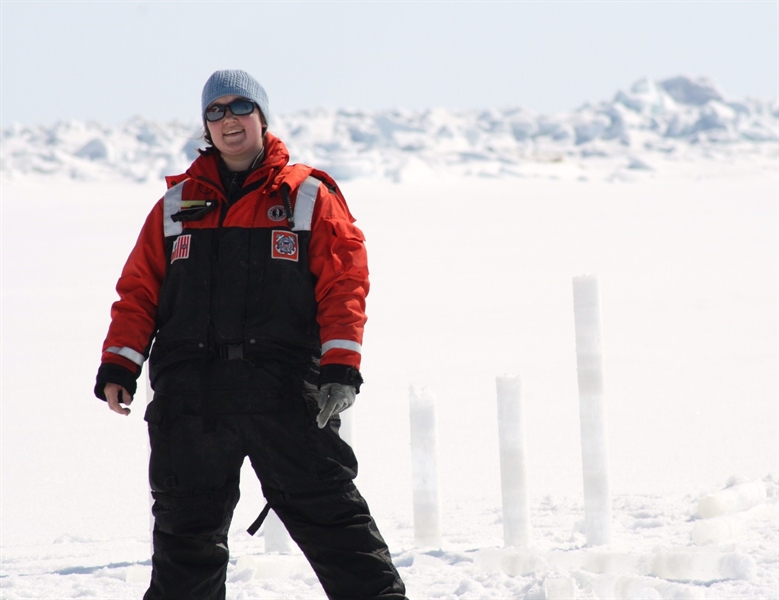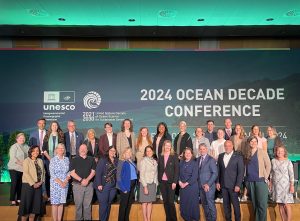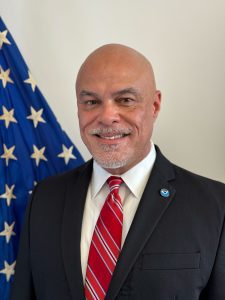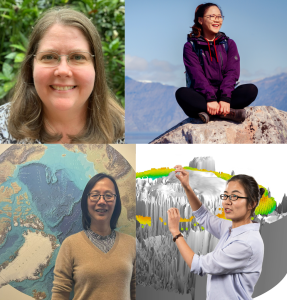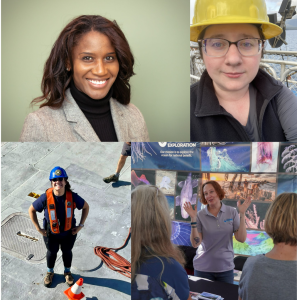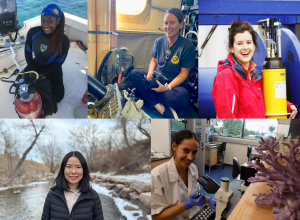Dr. Jessica Cross is an oceanographer and carbon cycle specialist for Alaska and the Arctic regions at NOAA’s Pacific Marine Environmental Laboratory (PMEL).
What drew you to your current career or field?
A series of rebellions. I started school to be a writer, but rebelled and got a major in chemistry; rather than enter traditional chemistry after school, I rebelled again and pursued applied science/oceanography. After growing up in Florida, I rebelled a third time and decided on graduate school in Alaska. I love bridging the gap between science and the public good (and I don’t have to work where it is hot).
What projects or research are you working on now?
I am the observational carbon chemistry expert for the Arctic and Alaska regions. Primarily, I study ocean acidification and its impacts on marine ecosystems and ecosystem services. This is really important in Alaska; 60 percent of the U.S. fish catch by weight comes out of Alaskan waters, and acidification may disrupt some of these major fisheries, affecting a billion-dollar economy and local food security.
However, Alaska is also a tough place to work. It is a really big place, so we have a lot of territory to try to cover with methods that just weren’t built for this kind of scale. That means we need to use a lot of different types of data collection, and even try to invent new ones! This involves being on ships, using autonomous vehicles to get more data, and developing new technologies to help us collect data we don’t have.
What do you enjoy most about your work?
In order to make sure we are making observations and products that will serve fisheries managers, local fishermen, native tribes, and rural Alaskan communities, I also spend a lot of time visiting and listening to a lot of different people in different fields. They all have different needs and concerns and think in different ways, and learning about those keeps me and my science creative and useful. I really love that I get to work on science that really matters.
Who do you look to as a role model and why?
I have a lot of respect for people who work in public service. I have been so inspired by how active local Alaskans are in trying to work to make their communities better. I’m also inspired by scientists who think this way—who try to make sure that people understand that science is a public good, and helps us live better. One voice I have noticed a lot lately is Katherine Hayhoe, a climate change communicator at Texas Tech. She is working hard to put a human face on climate change and climate scientists.
What was the best advice ever given to you that helped you become successful?
The best advice I ever got was that I needed to work in the customer service industry. I worked at the front desk of a medium-sized company, answering phones for our local office, but really any people-facing job (barista, retail associate) will do. This taught me how to interact with people and how to manage difficult situations and conversations. Those are basic skills that help you learn to network, which helps you find jobs and grow new collaborations!
The second best advice I ever got was that I needed to learn to be a dynamic public speaker. This helped me to present myself and my work in a variety of platforms, and to help build new collaborations—see a theme emerging? This has really been personally rewarding for me, because there are always new things to learn and new audiences to prepare for.
What challenges have you faced as a woman in your career/field, or in general, and how have you overcome them?
One of my biggest issues and pet peeves is that people assume that I’m not in charge of my own work—that there ultimately there is a supervisor they can speak to. At meetings people sometimes ask to speak to my PI, as though I was still in graduate school! It’s getting better—I try to speak up so that I’m not as easy to overlook.
What’s been your favorite (or proudest) moment in your career so far?
It’s hard to pick one, but one of the most personally rewarding moments for me was testifying to a committee of the Alaska state legislature. Nothing will drive home that what you do is important more than giving official testimony.
What do you hope to accomplish in the future? What do you hope the future for women in science looks like?
In the future, I hope that there are more women at all career stages represented in science. It can sometimes be lonely to work in a substantially male-dominated field, especially if most people in your field are a lot older than you are. Having more women in science will help create a supportive network and community for everyone working in science—when we can rely on each other, we are better, and our science is better.
Looking back, what would you tell yourself when you were 12 years old? Or what advice would you give to a woman just starting out in her career?
Looking back, I would tell myself to GET LOUD! It is OK to draw attention to yourself, and it is OK to speak up for the things you are passionate about. The world needs your energy. Also, there is such a thing as GOOD FAILURE. Trying new things—even when they don’t go according to plan—can really enrich your life.
